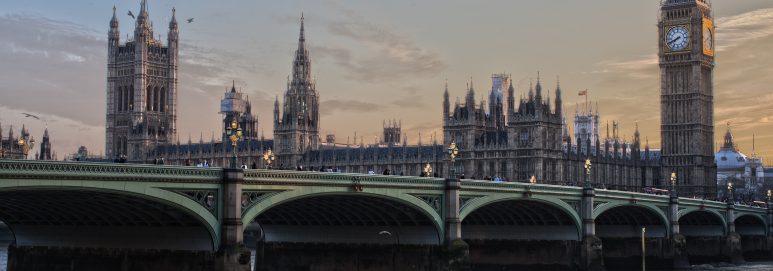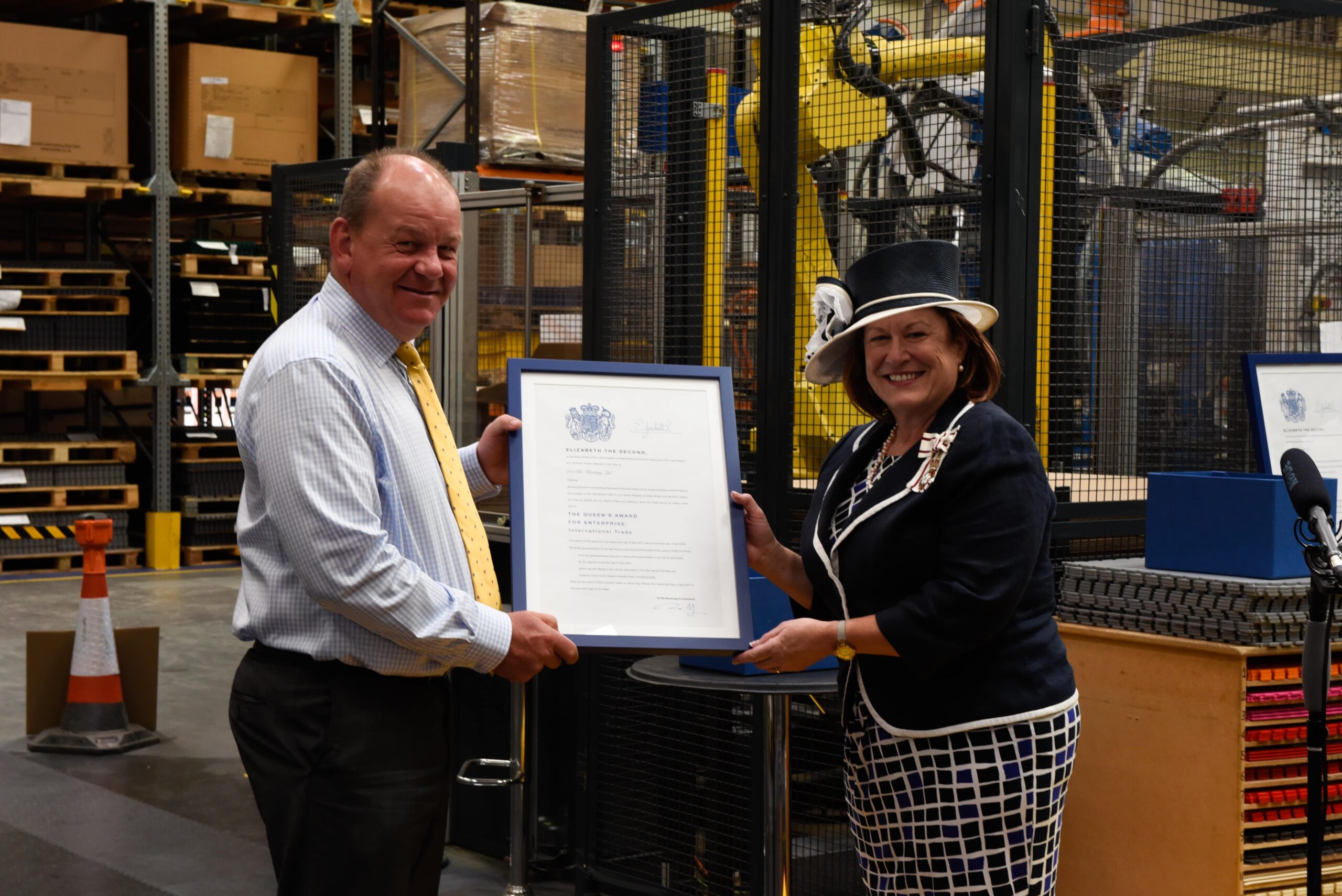
The government’s latest White Paper was published last week, finally providing definite information about the UK Government’s position to businesses in the UK and the European Union. It sets out the latest UK vision for a future relationship, dealing in trade in goods and services, as well as security cooperation, immigration and general oversight mechanisms.
The paper was keenly anticipated as it comes almost 12 months after the publication of the government’s original position papers on trade and customs matters, and is intended to refine its proposals in order to kickstart the Brexit negotiations.
The paper advocates;
- A Free Trade Area between the UK and the EU
- The UK adopting a common rulebook on standards and regulations which would mirror those of the EU (only for those regulations which impact on cross border movements of goods)
- A Facilitated Customs Agreement with the EU allowing goods to pass between the UK and EU Member States without the need for a formal customs clearance process and physical or documentary inspections at the border
- The Facilitated Customs Agreement would also permit tariff-free trade regardless of the origin of the goods and would enable the UK to operate a separate tariff from the EU, setting different levels of duty.
- The UK would establish a dual tariff mechanism for goods arriving into the UK from outside the EU, which would see goods which are destined for consumption within the UK being taxed at the new UK tariff rate.
- Goods landing in the UK but destined eventually for the EU would be taxed at the appropriate EU tariff level. Where the ultimate destination of goods cannot be identified they would be taxed at the higher rate and a reimbursement or adjustment applied if necessary.
- The paper also proposes ambitious plans to allow cumulation of origin between UK and EU content for goods exported to countries which have a current, or future Free Trade Agreement with the UK or EU. This would mean that both UK and EU content could be considered as local or eligible content in any preference scheme.
The paper and its proposals have received generally positive feedback from business. If adopted, it could relieve many of the major concerns of UK exporters by enabling:
- Smooth unbroken transit of goods between the UK and EU borders, including the problematic Irish land border,
- Removing the need for physical and documentary examinations for goods, including food and agricultural products,
- Enabling tariff-free trade between the UK and EU, without consideration of origin,
- Allowing the UK to pursue a separate tariff to the EU, and conduct an independent trade policy, signing free trade agreements with other countries.
However, the true test of the document will be the reaction of the other 27 EU states, and of the EU negotiating team. Despite the careful choice of terminology in the document (“Free Trade Area”, “Customs Agreement” instead of Customs Union), it is difficult to avoid the suggestion that the UK is trying to secure many of the benefits of the Single Market and Customs Union, while enjoying the freedom to conduct an independent trade policy.
Professor Anand Menon, Director of The UK in a Changing Europe, said:
“The Government’s White Paper should be welcomed, and is a useful starting point for the process of agreeing a future relationship between the UK and EU.
“Most strikingly the white paper represents a slight pinking of the UK’s red lines to ensure the absence of a border on the island of Ireland – a welcome recognition of the urgency of that particular problem. But it is far from being a solution to the Irish question or the issue of the broader trading relationship.
“Whilst I would hope the EU welcomes the evolution in the British position, it is difficult to envisage the plan being accept without further clarification and most probably further evolution on the British side on issues such as a practical alternative to a customs union and the nature of governance structures to oversee the so-called ‘joint rule book.’ Much remains to be done.”
Dr Simon Usherwood, Deputy Director of The UK in a Changing Europe, said:
“Three major issues are apparent. Firstly, the absence of a detailed and comprehensive plan for the Irish dimension means that the most immediate block to reaching a deal on the Withdrawal Agreement remains in place.
“Secondly, much of the consequence of the white paper’s position comes not from what it says, but what it doesn’t. For example, the language on free movement of people focuses what will be kept, rather than lost.
“Finally, the price of the Chequers consensus, even when elaborated in the white paper, appears to be some internal contradictions, as on the extent to which Parliament will have powers to refuse to implement EU rules, or on the role of the EU’s Court of Justice. While it is important to maintain room for manoeuvre in a negotiation, this cannot be achieved by creating a position that does not stand up on its own terms.”
On trade and economics, Professor Jonathan Portes, Senior Fellow at The UK in a Changing Europe, said:
“These proposals would effectively keep us in the single market for goods and food products – except we’d have far less influence over the rules. On services, including financial services, the UK continues to ask for extensive market access on the basis of “equivalence”, but at the same time seeks regulatory autonomy.
“While these proposals have been presented as a softening of the government’s approach to Brexit, even on the most optimistic interpretation they would still, in practice, mean new and substantial non-tariff barriers to trade, particularly in services. The government’s own “Brexit economic impact assessments” suggest that this would have a large and negative impact on the UK economy, perhaps in the region of three percent of GDP over 15 years.”
On immigration and free movement, Professor Jonathan Portes said:
“The white paper offers nothing substantively new on immigration and free movement; while a future trade agreement may cover mobility for business purposes, there is no commitment to a more generous regime for work or family visas than for non-EU countries, still less to a modified version of free movement.
“The rest of the EU is likely to see this as a missed opportunity, meaning one of three things is inevitable. Either the government will have to make a substantial further move on this, beyond the white paper; the EU27 will have to reverse their position that it is impossible to cherry-pick the ‘four freedoms’ of the single market; or the broader white paper proposals will be largely dead on arrival.”
Professor Catherine Barnard, Senior Fellow at The UK in a Changing Europe, said:
“The Prime Minister’s foreword to the white paper opens with the mantra with which we are familiar: We will take back control of our money, laws, and borders. She also says that means ‘leaving the Single Market and the Customs Union, ending free movement and the jurisdiction of the European Court of Justice.’
“But the devil is always in the detail. She wants a ‘common rulebook’ for goods including agri-food, with the UK making an upfront choice to commit by treaty to ongoing harmonisation with EU rules on goods’. And that, the white paper acknowledges, may mean a role for the ECJ in interpreting those EU rules. And as for free movement: the signals are mixed.
“The limited provisions laid down by the WTO’s GATS framework will form the basis and certain groups, such as students and the young, may benefit from a more generous regime but the door, at the moment, seems closed for those businesses relying on EU adult workers and hoping for a continued preferential regime.”
Matthew Bevington, Policy Researcher at The UK in a Changing Europe, said:
“The government has now offered greater detail about what it would like to retain about the UK’s relationship with the EU; whether there is an EU framework in which it could work in its entirety is highly questionable. There are broadly two models which the UK can pursue for its future relationship with the EU: market integration or trade liberalisation. The white paper reads mostly as cake made of the latter, with—dare I say it—a number of cherries picked from the former.”
To read the White Paper, please click on this link.

CEO and founder James Gedye has established Ecotile as the leading provider of interlocking floor tiles to the UK and around the world. Founded in 1996 from his bedroom turned office, James has built Ecotile into a multi-million-pound business, with sustainability still at the heart of his vision.
Based in Luton, Bedfordshire, Ecotile remains a privately owned UK manufacturing company, precision engineering all products in a purpose-built ISO accredited factory.
Leading the company to 2 prestigious Queens Awards in 2017 for Enterprise for Innovation and International Trade, these accolades underline James’ desire to create the highest quality products and fly the flag for British manufacturing. Working directly with leading businesses for over 25 years, James’ Ecotile brand has become synonymous with trust.
Used by 1000s of leading businesses, trusted by the MoD and specified by contractors, Ecotile floor tiles can be found across the world.
Connect or follow James on LinkedIn…

